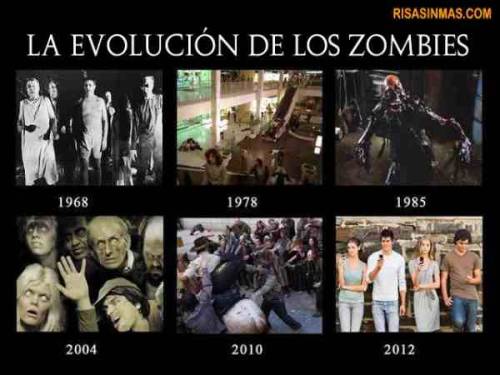Moloch whose love is endless oil and stone!
This line is very reminiscent of Philip Levine's "They Feed They Lion." It utilizes very industrial imagery and shares the theme of social unrest
Moloch whose love is endless oil and stone!
This line is very reminiscent of Philip Levine's "They Feed They Lion." It utilizes very industrial imagery and shares the theme of social unrest
Dadaism
Interesting he mentions Dadaism here since it can be argued that his work is a form of Dadaism itself. IT eschews traditional forms and embraces coarse language, almost as if Ginsberg is intentionally trying to separate himself from other poets and embracing artistic anarchy
who fell on their knees
The act of being on one's knees is a repeating image throughout the work. Ginsberg seems to be making a statement on people not being able to stand on their own two feet. Here it implies people are relying on religion as a crutch to help get through life.
looking for an angry fix
This reminds me of the novel and film "Requiem for a Dream." Great minds and ideas are destroyed due to the need for drugs
You know nothing? Do you see nothing? Do you remember Nothing?” I remember Those are pearls that were his eyes. 125 “Are you alive, or not? Is there nothing in your head?”
These lines draw on a prominent theme throughout Eliot’s work. The waste land is littered with people that aren’t truly alive. Instead, they are mindless drones that merely go throughout their lives as zombies. The imagery here depicts a person that is not capable of individual thought. The question being asked of whether the person is alive or not brings up the imagery of a machine. The person in question seems to know nothing while just going through the motions of appearing alive. They know nothing due to the fact that that they are merely doing as they’re told and submitting to a routine instead of being individuals and truly exploring their opportunities. The reason for this is never really made explicit, it is just the mentality of characters as Eliot writes them. They go about their business without acting as conscience beings. This leads into why Eliot considers a sea of mindless drones as a part of a waste land.

Eliot’s wasteland is a place devoid of life. He portrays people as devoid of higher thoughts, which makes them a mindless group of drones. The lack of critical thinking makes everyone appear as if they are merely zombies, people that are dead inside but are still up and walking around. This plays into many other sections of the poem where Eliot invokes imagery of people that are acting as mindless zombies. The sections of the poem where Eliot states that people are “dying with a little patience” and “I see crowds of people, walking round in a ring” utilize the repeating imagery of people mindlessly going about their existence somewhere in between truly living and dying. This un-life contributes to the concept of the waste land devoid of life. These people aren’t truly alive, which leads to them polluting the landscape, making it truly a waste land of lost souls.
They huddled you spoon-fashion in filthy hatches, They sold you to give a few gentlemen ease
This relates to Hughes' essay in regards to whites viewing blacks as unequal. Brown is pointing out the fact that the only reason blacks were brought over to the states was to make white businessmen's lives easier.
An’ den de folks, dey natchally bowed dey heads an’ cried, Bowed dey heavy heads, shet dey moufs up tight an’ cried, An’ Ma lef’ de stage, an’ followed some de folks outside.”
Much like the subject of Langston Hughes' "Weary Blues," Ma Rainey has a very downbeat and tragic style of the blues.
Git on back to de yearth, Cause I got de fear, You’se a leetle too dumb, Fo’ to stay up here. . .”
This reminds me of Hughes' statement that he wants to eat the same table as the whites. I believe Brown is making a statement that until racial equality is achieved and everyone eats at the same table, heaven isn't happening anytime soon.
With his ebony hands on each ivory key He made that poor piano moan with melody
The mixing of ebony (black) and ivory (white) is symbolic of equality. Racial coexistences is the sweet melody in context.
Coming from a black man’s soul. O Blues!
The blues player is the people of the Harlem renaissance themselves. The movement was based off of the pain of the people
Jean Toomer
Of all the names listed here, this guy's stories are easily the most raw in terms of racial tensions despite the fact that he was light-skinned enough to pass as white. Blood Burning Moon has one of the most graphic and cringe inducing lynch scenes I've ever read.
Revive for a moment a broken Coriolanus
Coriolanus- a deceased Roman general
We who were living are now dying With a little patience
Zombies mindlessly accepting what's given to them and waiting patiently
We who were living are now dying With a little patience
Zombies mindlessly accepting what's given to them and waiting patiently
“Are you alive, or not
I was neither Living nor dead, and I knew nothing
synthetic
Falsely Alive
Colored frame.
Lines that describe items like this make me think that Stein was playing with the audience by inserting descriptions for random things she saw around her while she was writing. This acts to throw off readers and stump critics, like James Joyce did with Finnegan's Wake
Pat ten patent, Pat ten patent.
Lines like this make me think Gertrude Stein was on some serious drugs. All joking aside, this definitely plays into her playing with words that she was known for with works like "Play"
Mourn in morning.
This line adds a since of loss to the poem. No idea what was lost though
making friends with death

Love can not fill the thickened lung with breath

Where strangers would have shut the many doors That many friends had opened long ago
It's been said before, but this line really hammers the point home about how Eben Flood has aged. Given enough time the most familiar of places will start to seem strange. It's like going back to one's hometown after being gone for a couple months. It may be subtle, but there'll be noticeable changes. Give it enough time and it will soon become unrecognizable.
“Well, Mr. Flood, if you insist, I might. “Only a very little, Mr. Flood–
He is so lonely that he holds conversations with himself. The only person he truly has anymore is himself
auld lang syne
auld lang syne loosely translates to "in old times." This phrase perfectly sums up the theme of loss and moving on.
Then I peeled off all the paper I could reach standing on the floor
I view the wallpaper as symbolic of the narrator's mental state. Her tearing the paper is symbolic of her mental state finally breaking.
I did write for a while in spite of them; but it DOES exhaust me a good deal—having to be so sly about it, or else meet with heavy opposition.
I'm curious if this is how Gilman felt in real life in regards to her writing and how critics and others reacted to her writing.
To be a poor man is hard, but to be a poor race in a land of dollars is the very bottom of hardships
Very powerful way of putting the pain felt by African-Americans of the time. Kind of reminiscent of Dante's Hell in which the damned can look up and see everyone in Heaven enjoying themselves.
there is no true American music but the wild sweet melodies of the Negro slave
Rock and Roll is considered an American type of music. Rock and Roll is an offshoot of the Chicago and Delta Blues, which was birthed from the oppressed blacks in the early twentieth century. These were also an offshoot of the songs slaves would sing out in the fields. This lends a lot of credence to Du Bois' writing, even if he was before the t8ime of rock.
Unresting water, there shall never be rest Till the last moon droop and the last tide fail
I feel like this sums up Du Bois' attitude towards race relations. He wants things to calm down, but he knows that the turmoil won't be stopping anytime soon.
Where he saw sequence, other men saw something quite different, and no one saw the same unit of measure. He cared little about his experiments and less about his statesmen, who seemed to him quite as ignorant as himself and, as a rule, no more honest; but he insisted on a relation of sequence, and if he could not reach it by one method, he would try as many methods as science knew.
This passage really shows Adams distancing his narration and him as a scholar. He is acting as a proper narrator in that he is not just talking about his perspective, but how his perspective relates to those of others. He also is detailing his personal thoughts as opposed to informing people of scholarly information
The lines "Earth is eating trees, fence posts,/ gutted cars, earth is calling in her little ones" calls forth an image of urban decay. Not only is this an industrial landscape, but it is a dying industrial landscape. It's as if the landscape has died and is returning to the earth